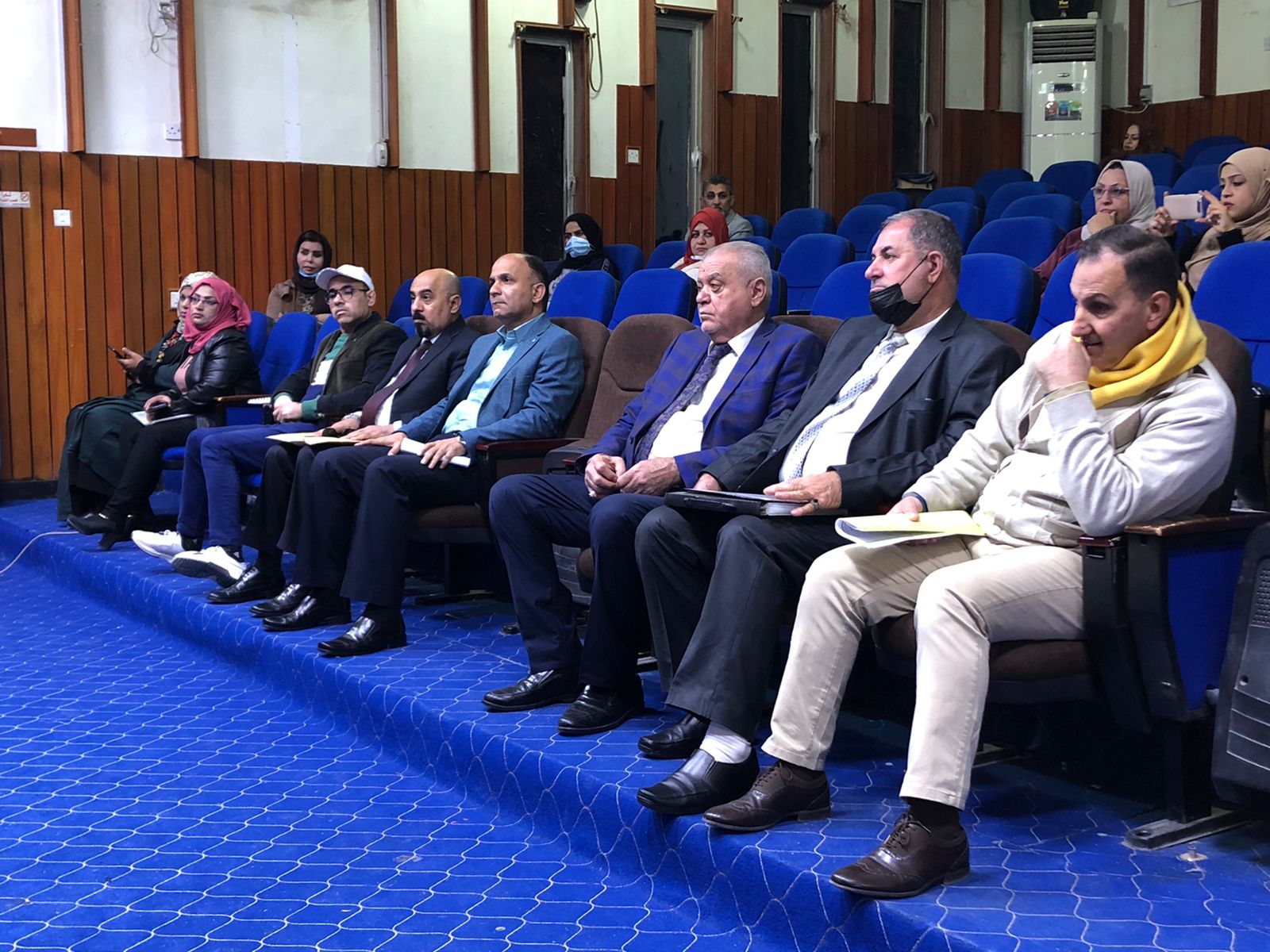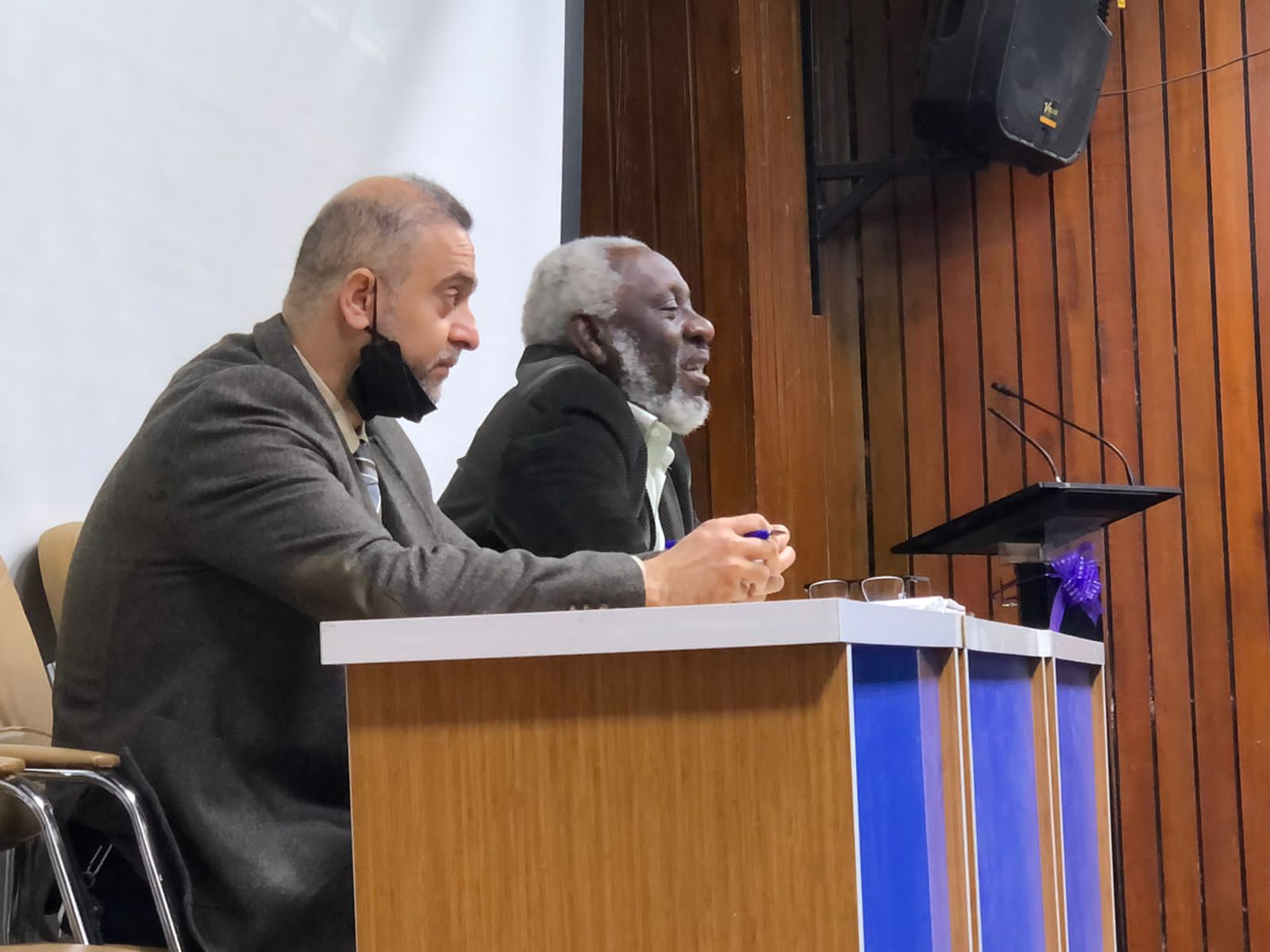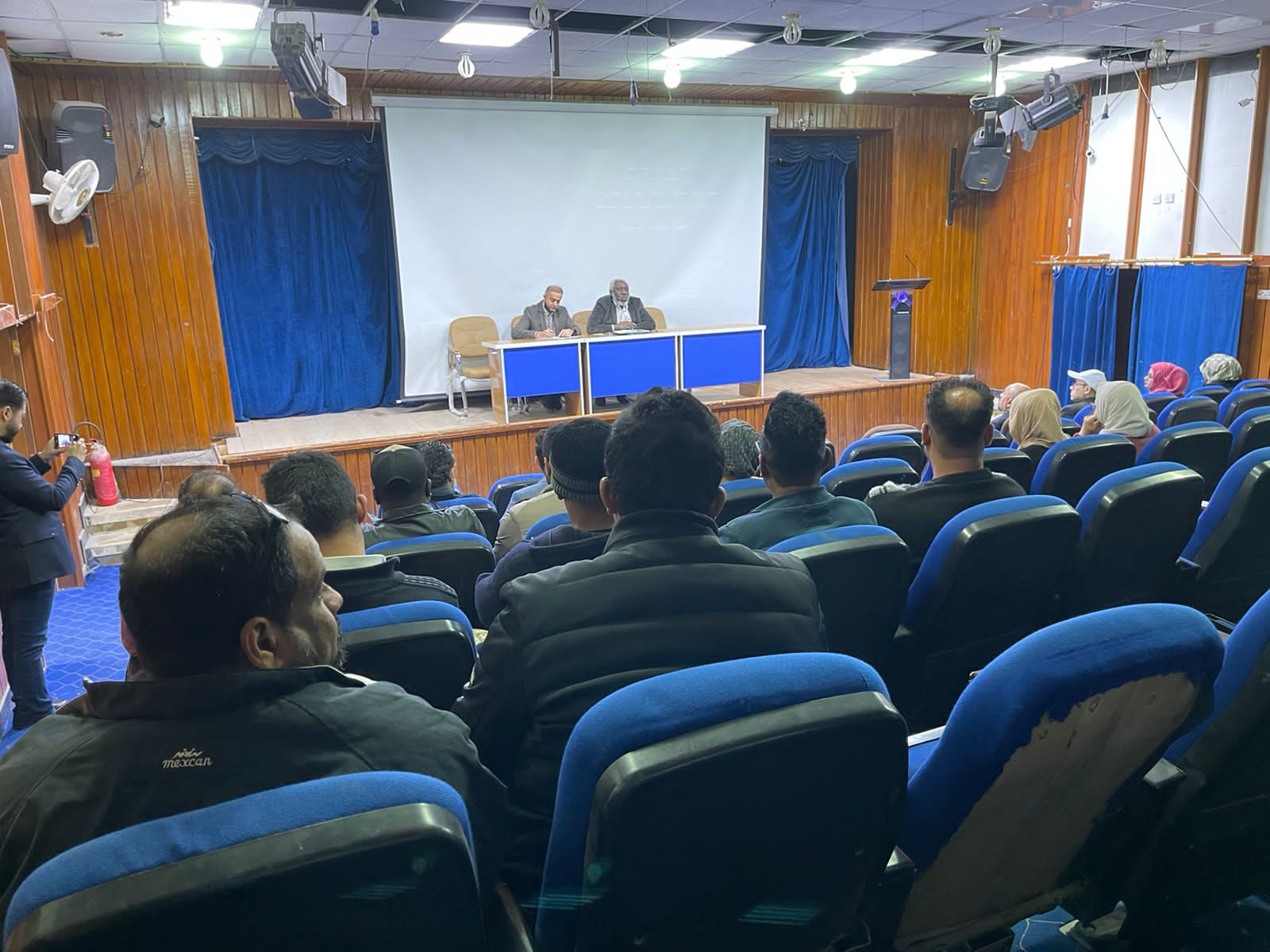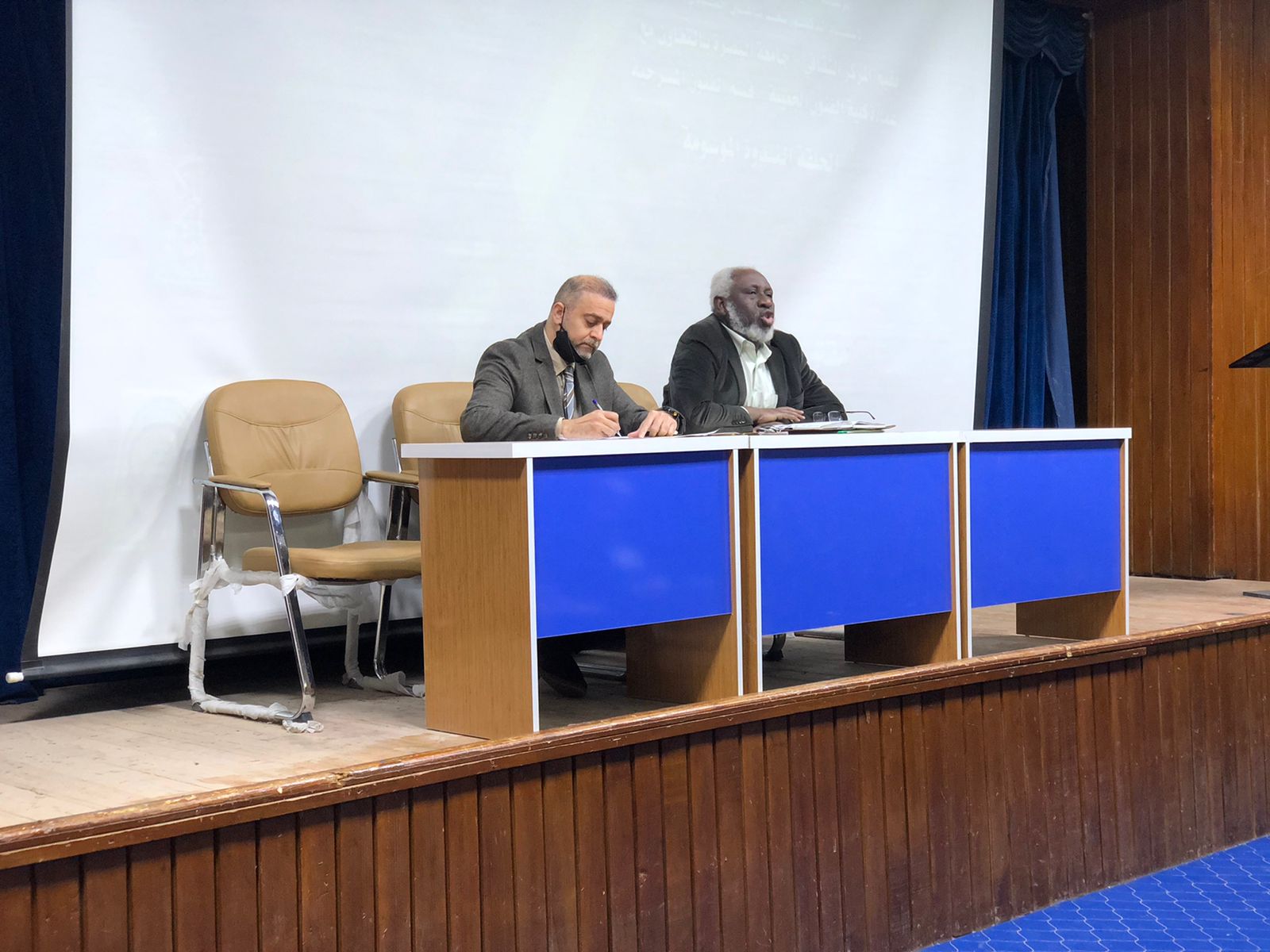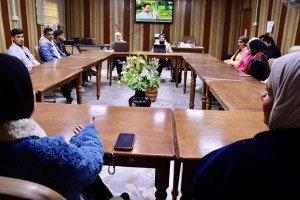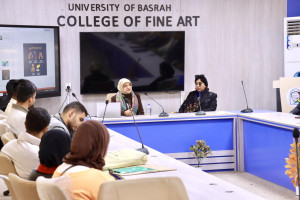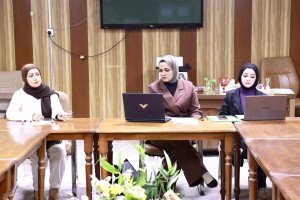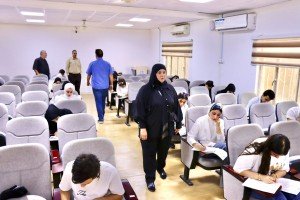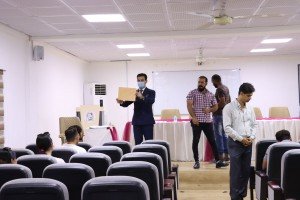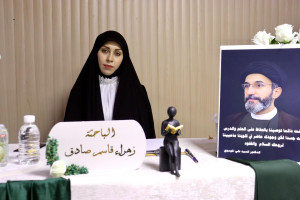
The College of Fine Arts, in cooperation with the Cultural Center at the University of Basrah, organized the symposium tagged (perspectives of scientific research in theatrical arts, proposals and applications). Professors, academics and researchers from Iraqi universities specialized in this regard participated in the symposium, which was held at the central theater hall of the College of Fine Arts.
The symposium, which was moderated by the Director of the Cultural Center, Prof. Dr. Abdel Karim Abboud, as Chairman, and Dr. Hassanein Abdel Wahab, Head of the Performing Arts Department, as the Rapporteur. Opening with the national anthem and reading Surat Al-Fatihah on the souls of our righteous martyrs, then a speech by the Dean of the College of Fine Arts, Dr. Ali Abdullah Al-Kinani
Then the symposium included six interventions.
The first intervention of the experienced professor, Dr. Aboud Al-Muhanna, from the University of Babylon, College of Fine Arts, entitled (Prospects of scientific research in theatrical arts). As for the second intervention, it was presented by Prof. Dr. Ali Muhammad Hadi Al-Rubaie, College of Fine Arts, University of Babylon, entitled
(The statics of the curriculum and the sterility of postgraduate studies in the Faculties of Fine Arts)
As for the third intervention, it was entitled (Privacy of scientific research in theatrical arts) by Assistant Professor Dr. Ali Abdul-Hussain Al-Hamdani, University of Basra, College of Fine Arts.And the fourth intervention was titled (Actor and Displacement Problematic Curriculum in the Actor’s Work) by Assistant Professor Dr. Ahmed Sharji Sudkhan from Al-Mustansiriya University, College of Basic Education, and Prof. Dr. Muhammad Karim from Maysan University, College of Basic Education presented the fifth intervention entitled (Multiple research methods in fine arts and their methodological dependencies) and finally came The sixth intervention, entitled (Scientific Theatrical Research between Followers and Creativity), by Assistant Professor Dr. Musab Ibrahim Al-Tai, University of Mosul, College of Fine Arts.
Abboud stated that the symposium aims to exchange research experiences between academic institutions producing scientific theatrical research and to try to find research spaces with privacy for theatrical research away from imitation and repetition, as well as contributing to the development of research plans for graduate studies based on strategic foundations and elements and studying theatrical aesthetic scientific research paths In order to diversify research and create a clear impact to serve the Iraqi theatrical creativity and to reach recommendations that are presented to the relevant decision-makers, the theatrical scientific research achieves practical proposals that the symposium comes out with and refers them to annual work plans.
Abboud added that the symposium is looking for a scientific alternative that achieves for all of us as researchers an effective dynamic that keeps pace with the spirit of the age with all its data and transforms theatrical research into a new life that discusses with philosophical assumptions all the problems of the theatrical phenomenon in Iraq in its diversity to achieve distinctive answers and solutions capable of overcoming problems. From here came our call as a first step that will be followed by subsequent steps that crystallize the goal of innovation and innovation in theatrical research paths in our universities and research institutions.
In the end, the final statement and recommendations were read about the events of the episode and came to a set of recommendations
Of which
1- The establishment of an Iraqi scientific conference on scientific research methods in theatrical arts and its methodological specificity
2- Issuing special instructions for writing special principles and methodology for theatrical research to take its methodological dimension, procedure, and research effectiveness in society.
3- Emphasis on the diversity of theatrical research to include multiple knowledge areas, aesthetic, historical, social, and specialized, while drawing inspiration from the overlap of neighboring sciences in scientific research.
4- Deepening and confirming the idea of joint research for research groups between universities and researchers in order to develop the idea of exchanging experiences.
5- Develop strategic research plans for scientific departments that include research that contribute to community service and keep pace with technical and digital developments in our world today.
